2021 IEEE SERVICES - IEEE International Symposium on on Quantum Software and Services (QSAS)
IEEE International Symposium on Quantum Software and Services (QSAS) - Technical Program
Conference code: QSS
All times are listed in UTC time. To convert UTC time to your time, use the UTC Time Zone Converter.
| Date/Time | Session | Session Chair | Presentation |
|---|---|---|---|
| Tues 9/7 18:50 - 20:10pm UTC time |
QSS 1 Distinguished Speaker |
Schahram Dustdar Technical University of Vienna |
Jay Gambetta, IBM Research Current & Future of Quantum Software & Services 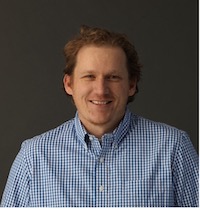 Jay Gambetta is the Vice President in charge of IBM’s overall Quantum initiative. He leads the strategy and execution of IBM Quantum.
He was named as an IBM Fellow in 2018 for his scientific work on superconducting qubits, quantum validation techniques, implementation of quantum codes, improved gates and coherence, and near-term applications of quantum computing—in addition to establishing IBM’s quantum strategy.
Jay Gambetta is the Vice President in charge of IBM’s overall Quantum initiative. He leads the strategy and execution of IBM Quantum.
He was named as an IBM Fellow in 2018 for his scientific work on superconducting qubits, quantum validation techniques, implementation of quantum codes, improved gates and coherence, and near-term applications of quantum computing—in addition to establishing IBM’s quantum strategy. Under his leadership, the IBM Quantum team has made a series of major breakthroughs in the quantum industry: starting with launching the IBM Quantum Experience – the world-first cloud-based quantum computing platform for users to access real quantum computers, the IBM Quantum team released Qiskit – an open source software development kit for developing quantum programs, and deployed the IBM Quantum System One, a family of quantum processors for clients that now includes the 27 qubit Falcon and 65 qubit Hummingbird quantum processors. IBM Quantum continues to expand in the market by providing 38 quantum systems opened for service over the cloud from anywhere in the world, building the foundations of the quantum industry with a community of partners advancing quantum science and applications via the IBM Quantum Network. Dr. Gambetta received his Ph.D. in Physics from Griffith University in Australia. In 2014, he was named as a Fellow of the American Physical Society and has over 130 publications in the field of quantum information science with over 23000 citations. |
| Tues 9/7 20:20 - 21:40 pm UTC time |
QSS 2 |
Stefan Worner IBM Research |
Panel Discussion: Quantum Applications Panelists:
Valeria Bartsch, Fraunhofer ITWM Alberto Di Meglio, CERN Dimitar Trenev, ExxonMobil William Zeng, Goldman Sachs |
| Wed 9/8 4:10 - 5:30 am UTC time |
QSS 3 |
Luciano Bello IBM Quantum |
Qiskit and Open QASM3: Towards Dynamic Circuits in the Cloud In this presentation, we will introduce IBM’s vision for near and real-time quantum computing. We will discuss the importance of considering a hierarchy of latencies within our system and how we provide quantum systems as an accelerator coprocessor through the Qiskit runtime. Following this, we will introduce OpenQASM3 - a new version of the quantum programming language, OpenQASM, that provides the features required for a near-term quantum system to pursue quantum advantage and explore quantum error correction. We will then demo performing quantum teleportation through Qiskit and OpenQASM3 on our next-generation real-time control systems. Following the demonstration, we will end with a brief overview of the compiler technologies that support OpenQASM3 and hardware code-generation within our backend services.  Thomas Alexander is a software developer at IBM Quantum, which is a market leader in quantum systems and services. At IBM, Thomas helps design and build the software platforms and computer architectures that wrap the control electronics that power a quantum computer. This includes modeling and compiling quantum programs at the levels of circuits, pulses, and proprietary hardware platforms. Thomas enjoys contributing to the quantum computing community and leads the effort to open-source control of IBM Quantum systems through Qiskit Pulse. Prior to joining IBM Quantum, Thomas studied quantum computing at the Institute for Quantum Computing at the University of Waterloo where he performed experiments in solid-state NMR, NV centers, and developed software for experiment design systems.
Thomas Alexander is a software developer at IBM Quantum, which is a market leader in quantum systems and services. At IBM, Thomas helps design and build the software platforms and computer architectures that wrap the control electronics that power a quantum computer. This includes modeling and compiling quantum programs at the levels of circuits, pulses, and proprietary hardware platforms. Thomas enjoys contributing to the quantum computing community and leads the effort to open-source control of IBM Quantum systems through Qiskit Pulse. Prior to joining IBM Quantum, Thomas studied quantum computing at the Institute for Quantum Computing at the University of Waterloo where he performed experiments in solid-state NMR, NV centers, and developed software for experiment design systems.
|
| Wed 9/8 5:40 - 7:00 am UTC time |
QSS 4 | Stefan Worner IBM Research |
Quantum & Classical Computation Michael Behrendt This talk is going to review the potential of combining quantum and classical computation provided via cloud infrastructure. This includes how to use technologies like Qiskit as a quantum open-source framework and how to combine it and quantum hardware. This is coordinated by running the code on IBM Cloud Code Engine, which – in integration with the open source framework lithops – takes both care of the execution of the actual driver code and also the execution of large classical compute jobs for big data analytics and other (embarrassingly) parallel jobs. 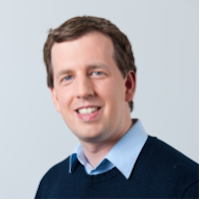 Michael Behrendt is a Distinguished Engineer in the IBM Cloud development organization. He is responsible for IBM's technical strategy around serverless & Function-as-a-Service. Before that, he was the Chief Architect of IBM's core cloud platform and was one of the initial founding members incubating it, led the development of IBM's Cloud Computing Reference Architecture, was a worldwide field-facing cloud architect for many years, and drove key product incubation & development activities for IBM's cloud portfolio
Michael Behrendt is a Distinguished Engineer in the IBM Cloud development organization. He is responsible for IBM's technical strategy around serverless & Function-as-a-Service. Before that, he was the Chief Architect of IBM's core cloud platform and was one of the initial founding members incubating it, led the development of IBM's Cloud Computing Reference Architecture, was a worldwide field-facing cloud architect for many years, and drove key product incubation & development activities for IBM's cloud portfolio
Michael has been working on Cloud Computing for more than 15 years and has 37 patents. He is located in the IBM Research & Development Laboratory in Boeblingen, Germany. |
| Wed 9/8 16:30 - 17:50 pm UTC time |
QSS 5 | Manuel Wimmer University Linz |
First Steps Towards Model-Driven Engineering for Quantum Computing
Quantum computing technologies are emerging. However, as a consequence, there is an increase in the complexity of software and its development, since the applications will be implemented using a mix of quantum and classical resources. Orthogonal to this progress, Model-Driven Engineering (MDE) is applied to reduce complexity and ease the development of software systems. MDE proposes to apply modeling techniques such as General Purpose Modeling Languages as well as Domain-Specific Modeling Languages, and generative techniques such as model transformation and code generation. In this talk, we argue for a dedicated research line which deals with the exploration of how MDE may be applied to quantum computing. For this purpose, we first outline the main principles behind MDE. Thereafter, we describe a particular case study, namely the problem of k-community detection and show how it can be solved with NISQ-devices utilizing hybrid quantum-classical approaches. Subsequently, this problem serves as a demonstration case for applying methods and techniques from MDE to develop quantum software as well as to derive research challenges. Although still in an early stage, we expect the combination of MDE with quantum computing to allow for efficiency increase in the development of quantum software and to open the door for domain experts to utilize this emerging technology.
|
| Wed 9/8 19:40 - 21:00 pm UTC time |
QSS 6 | Ismael Faro IBM Quantum |
Panel: Quantum Startups In this panel we are going to talk with Quantum Startups and their role in the current and future of Quantum, and all the impact in the software and services that they use. Panelists:
|
| Thurs 9/9 4:10 - 5:30 am UTC time |
QSS 7 | Luciano Bello IBM Research |
Quantum Compilation Steps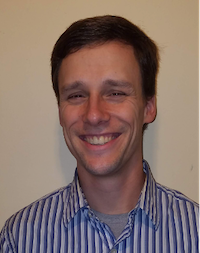 Kevin Krsulich, IBM Research
Kevin Krsulich, IBM ResearchKevin Krsulich is a lead research software engineer and manager of the Quantum Compiler group at IBM. He leads development of the Qiskit transpiler, an open-source tool for translating and optimizing quantum programs to target current and future quantum hardware. Kevin received a B.S. in physics from MIT, a Ph.D. in nuclear science from MIT, and was a visiting scholar at the Institute for Quantum Computing (IQC) at the University of Waterloo, Canada. |
| Thurs 9/9 18:10 - 19:30 pm UTC time |
QSS 8 | Sebastian Feld TU Delft Carmen Recio Valcarce, IBM Quantum Zurich |
Panel: Quantum Software Ecosystem Panelists: Fabio Scafirimuto Alba Cervera Jacob Friis Sherson William Hurley, Strangeworks Gabriele Raino, ETH Zurich Panel: Software for Quantum Hardware Design Panelists: Zlatko K. Minev, IBM Quantum |
| Thurs 9/9 19:40 - 21:00 pm UTC time |
TUT 1 | Jessie Yu IBM Research |
Tutorial: Quantum Cloud, Near time Compute and Qiskit Runtime This tutorial is a hands-on session using the latest quantum technologies and programming concepts, during which we are going to explore how to use quantum programs in a near-time-compute regime, especially for quantum variational algorithms such as VQE. This near-time-compute method aims to reduce latency in each loop between classical and quantum computation that happens near the quantum device. In this tutorial we are going to work with Qiskit Runtime, a new architecture offered by IBM Quantum that streamlines computations requiring many iterations. At the end of the tutorial you are going to understand the process to create, deploy and use quantum programs near to the quantum computer.  Jessie Yu is a senior software developer and prolific inventor at IBM. She has a M.S in Computer Science from Marist College. Prior to working on quantum computing, Jessie’s career was mainly in the area of IBM mainframe kernel development and analytics software. Her experience in IBM Quantum began in 2018 where she first worked on systems and infrastructure support and later took over as maintainer for qiskit-ibmq-provider, a framework that provides access to IBM Quantum devices and services. To each aspect of the IBM Quantum systems, she brings design thinking, systems architecture, and a mainframe sense of quality, reliability, availability, and serviceability, balanced with the agile and community focused approaches of open source software development.
Jessie Yu is a senior software developer and prolific inventor at IBM. She has a M.S in Computer Science from Marist College. Prior to working on quantum computing, Jessie’s career was mainly in the area of IBM mainframe kernel development and analytics software. Her experience in IBM Quantum began in 2018 where she first worked on systems and infrastructure support and later took over as maintainer for qiskit-ibmq-provider, a framework that provides access to IBM Quantum devices and services. To each aspect of the IBM Quantum systems, she brings design thinking, systems architecture, and a mainframe sense of quality, reliability, availability, and serviceability, balanced with the agile and community focused approaches of open source software development.
|
| Fri 9/10 18:10 - 19:30 pm |
HAC | Salvador de la Puente IBM Research |
Hackathon Finalist Presentation |
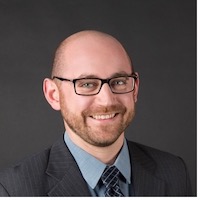 Stefan Wörner, IBM Research - Zurich
Stefan Wörner, IBM Research - Zurich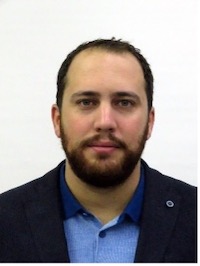 Antonio Garmendia is a postdoctoral researcher at the WIN-SE department at the Johannes Kepler University Linz (JKU Linz). He received his Ph.D. in Computer and Telecommunication Engineering from the Universidad Autónoma de Madrid (UAM). As a Ph.D. student, he made a research visit to the Philipps-University Marburg (Germany). He was a member of the “Modelling and Software Engineering” research group (http://www.miso.es/) at UAM. His research interests are in scalability in Model-Driven Engineering (MDE), the construction of graphical/textual environments and the application of MDE to Quantum Computing. He has participated in the MONDO EU project on scalability in MDE.
Antonio Garmendia is a postdoctoral researcher at the WIN-SE department at the Johannes Kepler University Linz (JKU Linz). He received his Ph.D. in Computer and Telecommunication Engineering from the Universidad Autónoma de Madrid (UAM). As a Ph.D. student, he made a research visit to the Philipps-University Marburg (Germany). He was a member of the “Modelling and Software Engineering” research group (http://www.miso.es/) at UAM. His research interests are in scalability in Model-Driven Engineering (MDE), the construction of graphical/textual environments and the application of MDE to Quantum Computing. He has participated in the MONDO EU project on scalability in MDE.  Felix Günther Gemeinhardt
Felix Günther Gemeinhardt Ismael Faro, IBM Research
Ismael Faro, IBM Research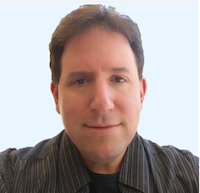 Shai Machnes, Qruise
Shai Machnes, Qruise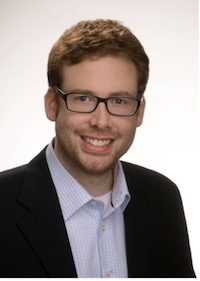 Albert Frisch, AQT
Albert Frisch, AQT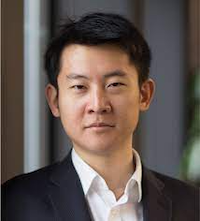 Yudong Cao, Zapata Computing
Yudong Cao, Zapata Computing Tennin Yan, QunaSys
Tennin Yan, QunaSys